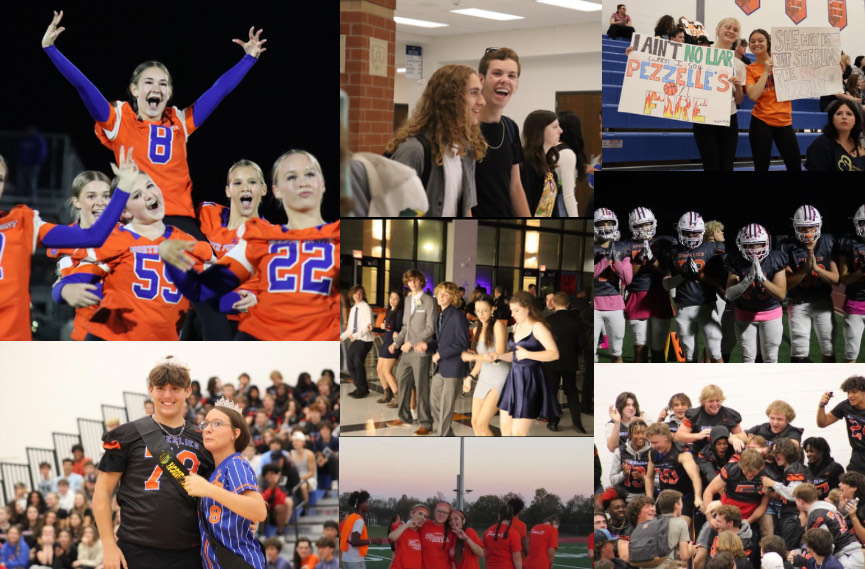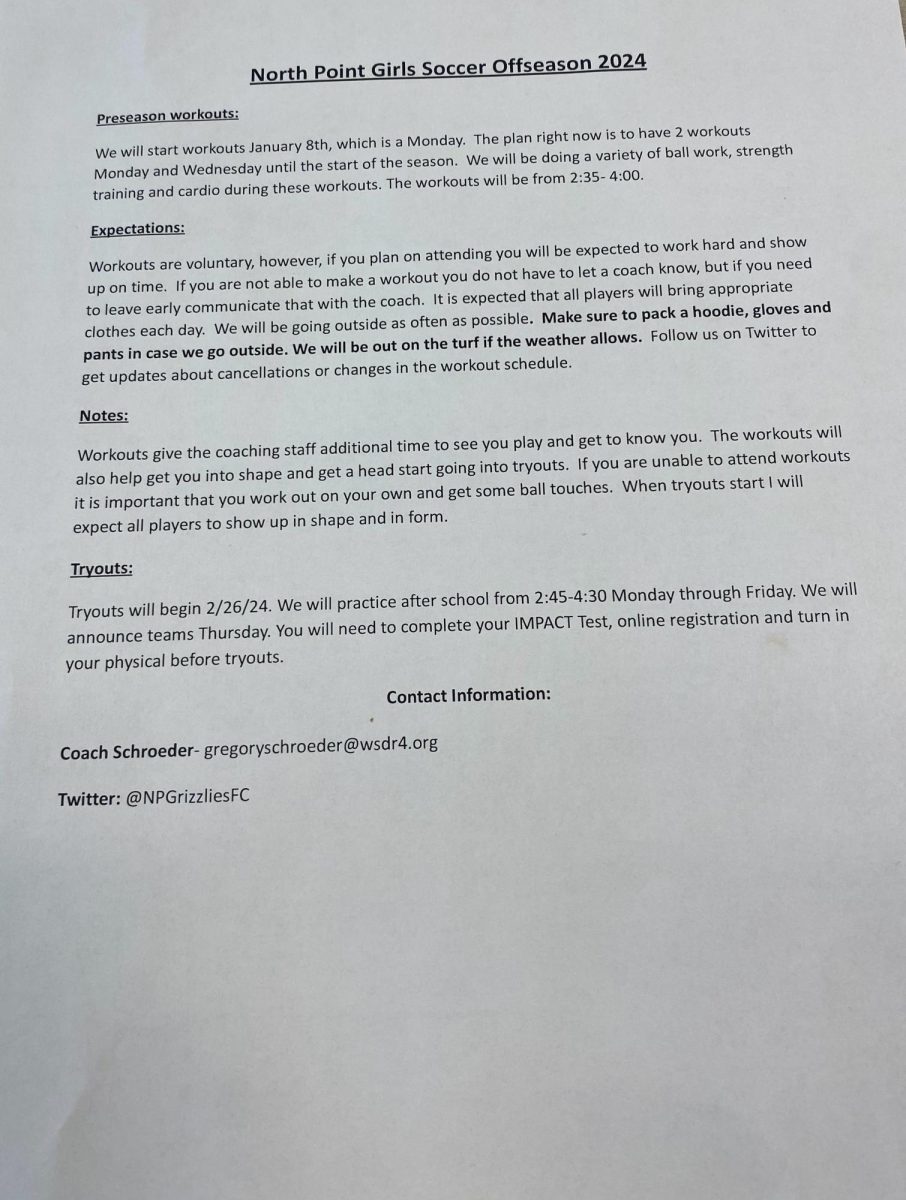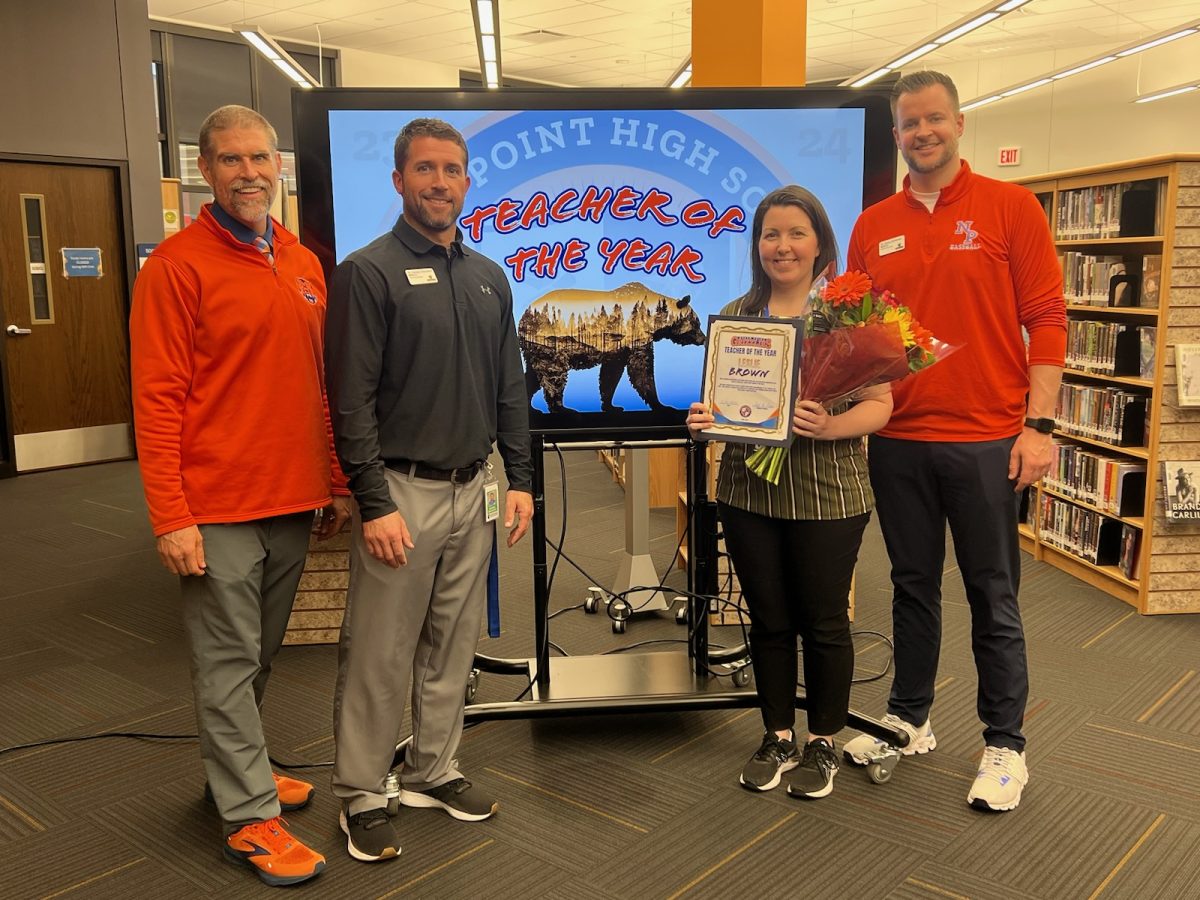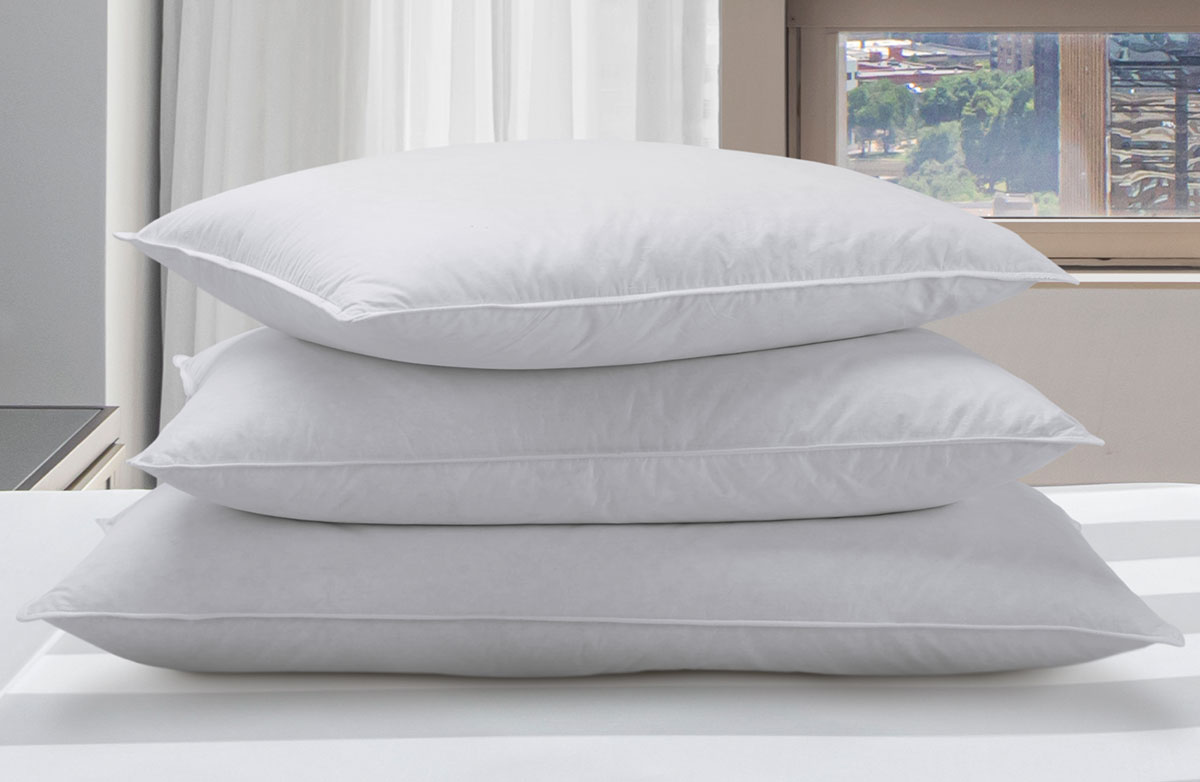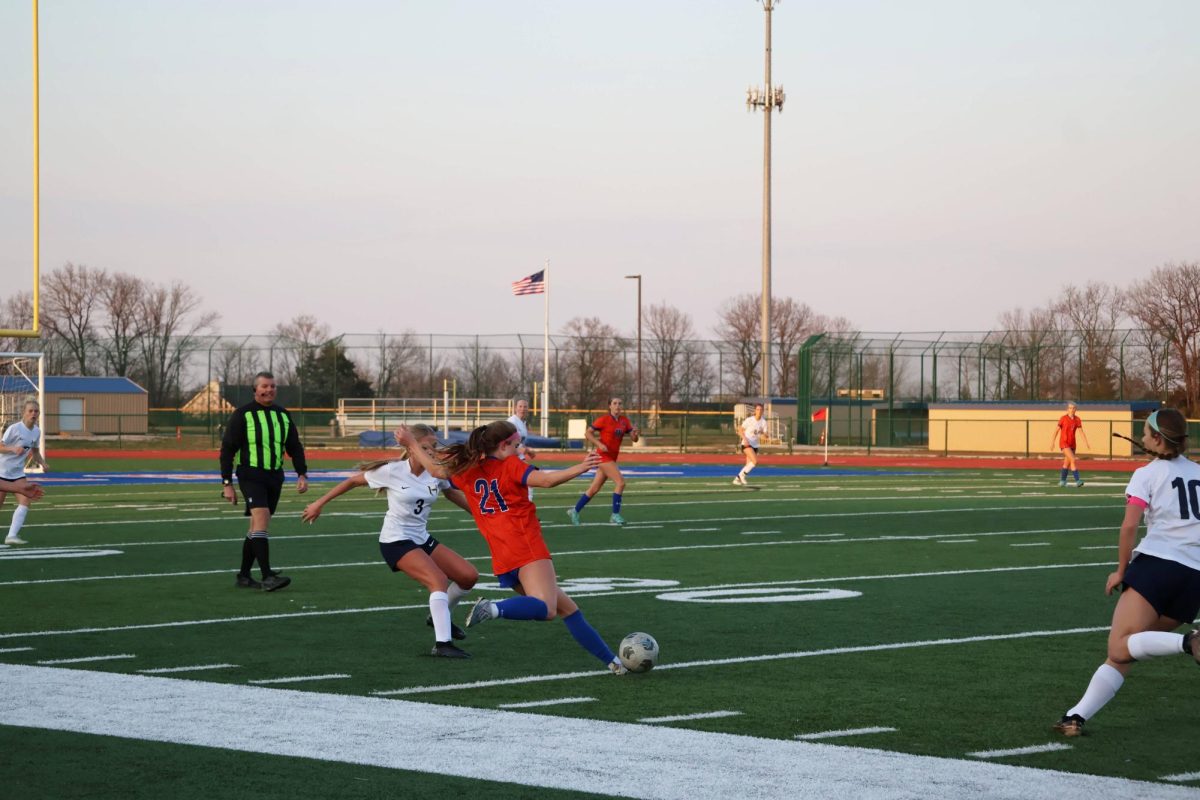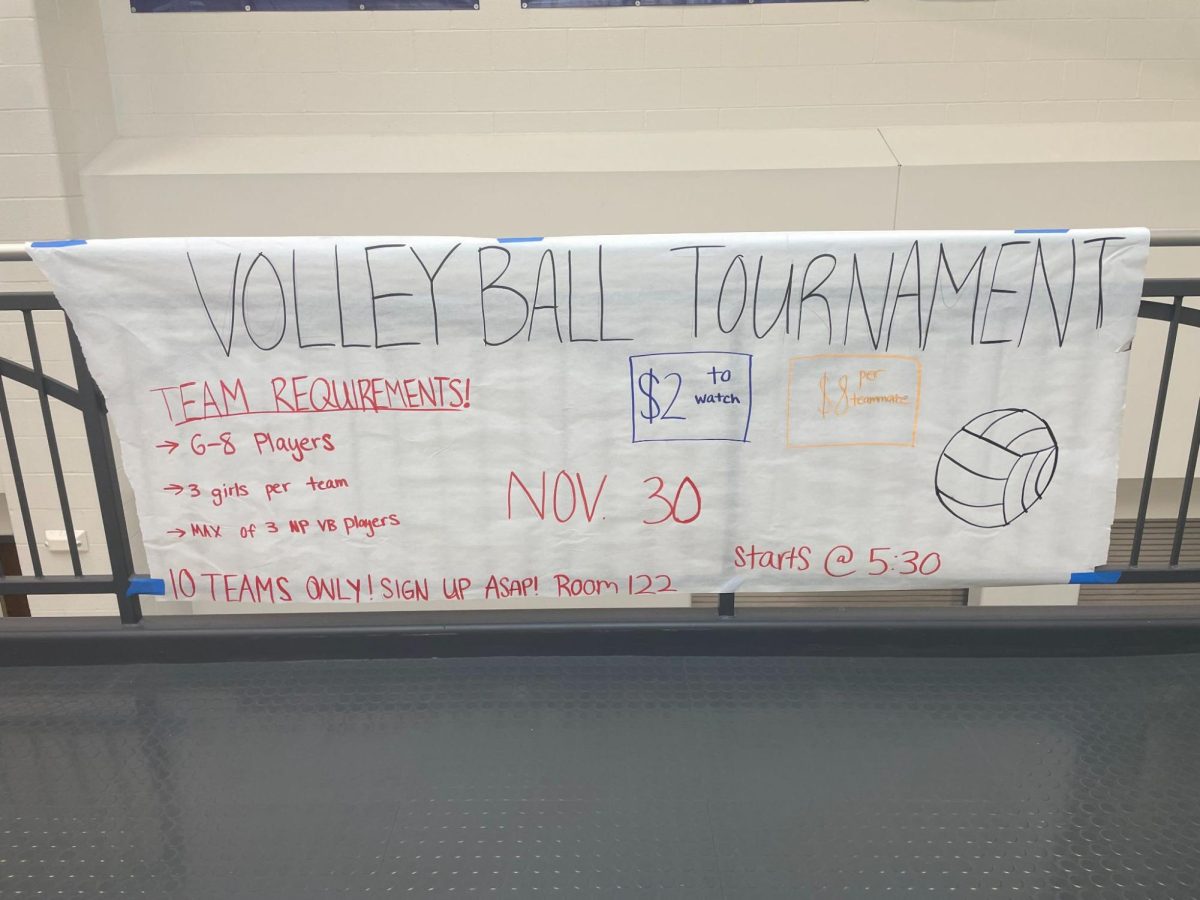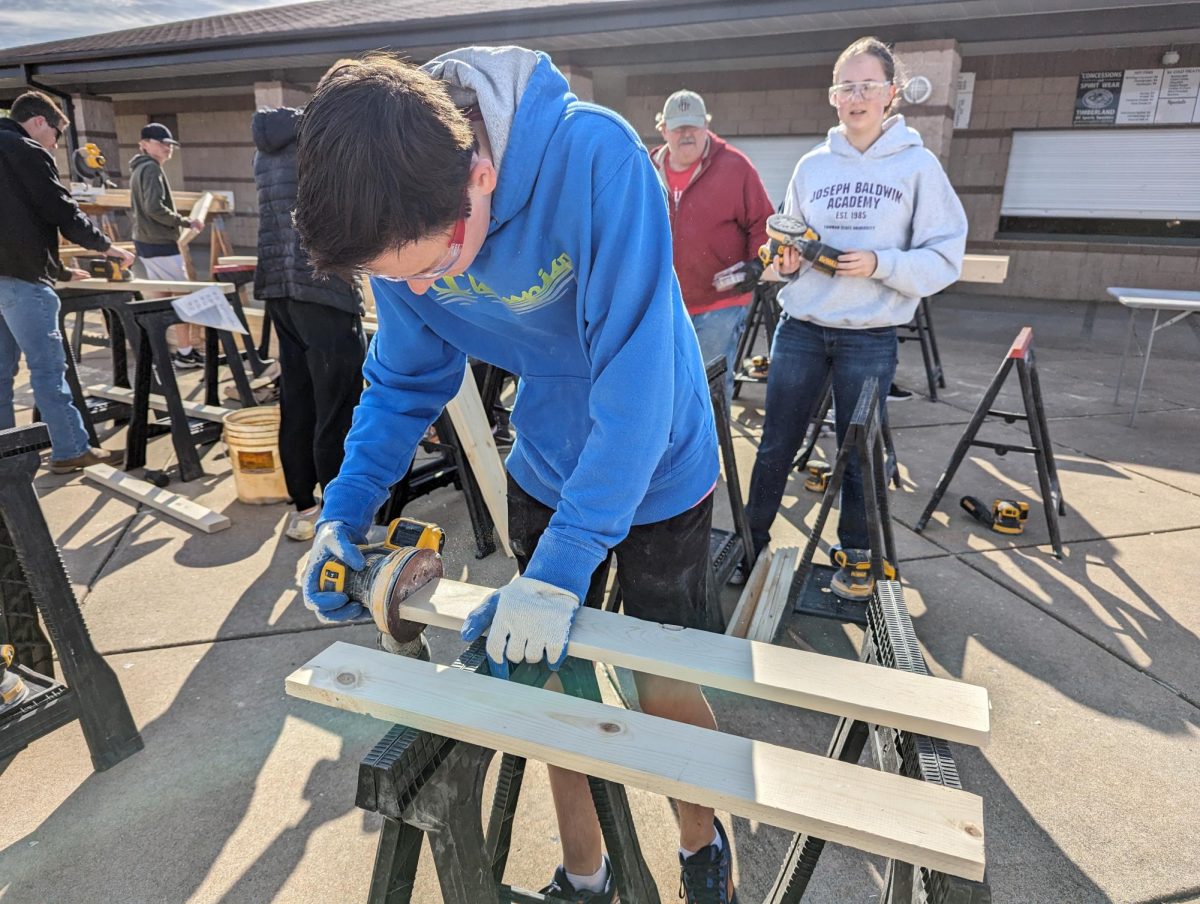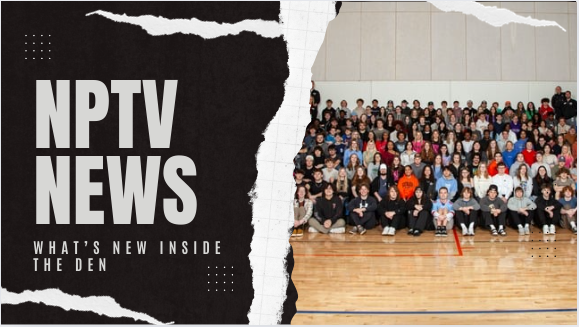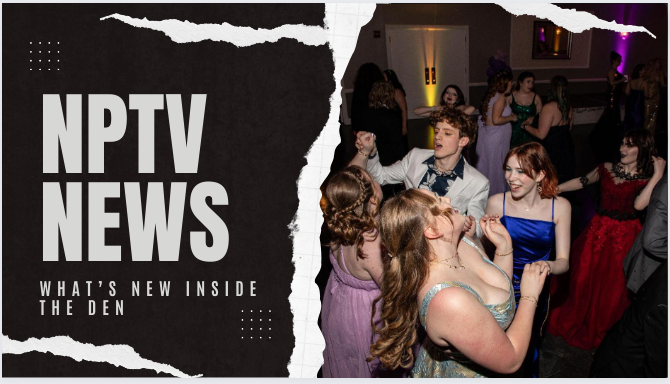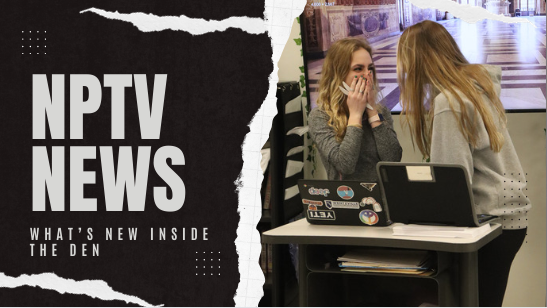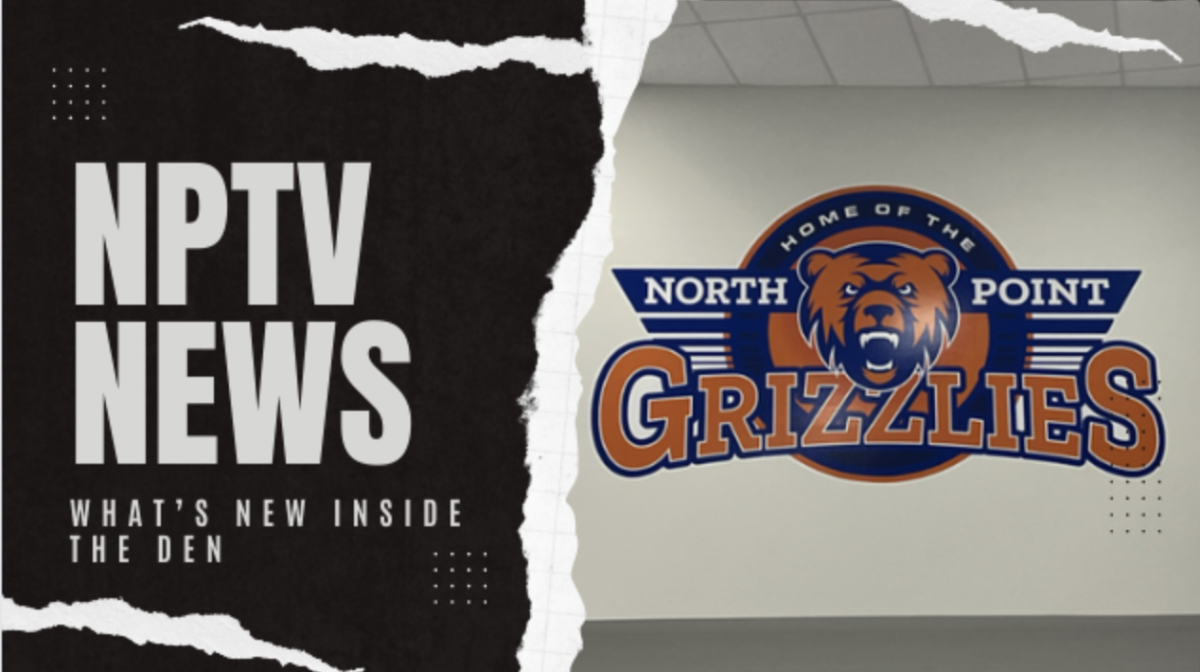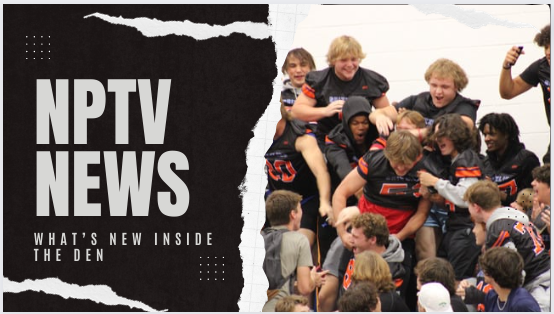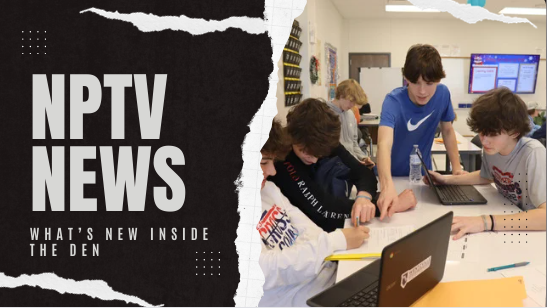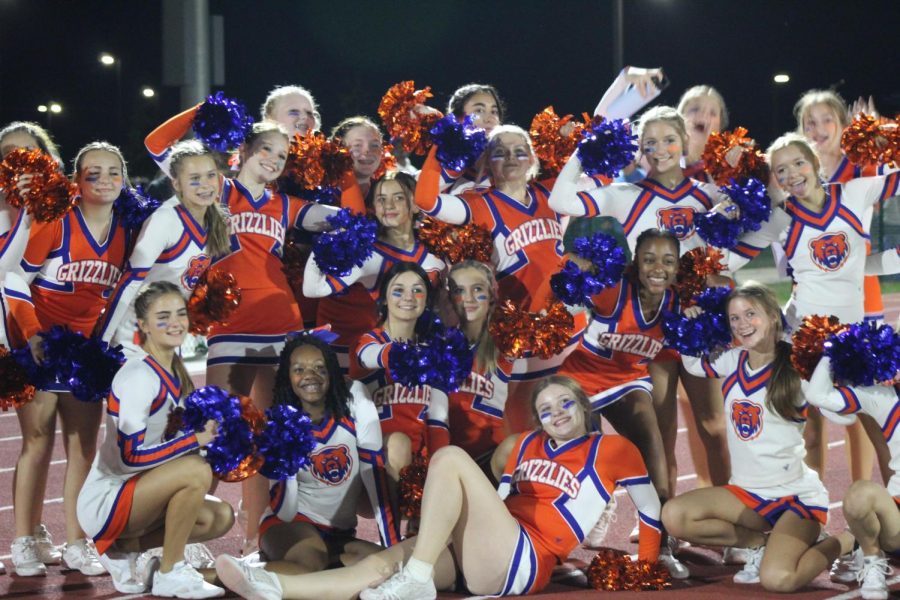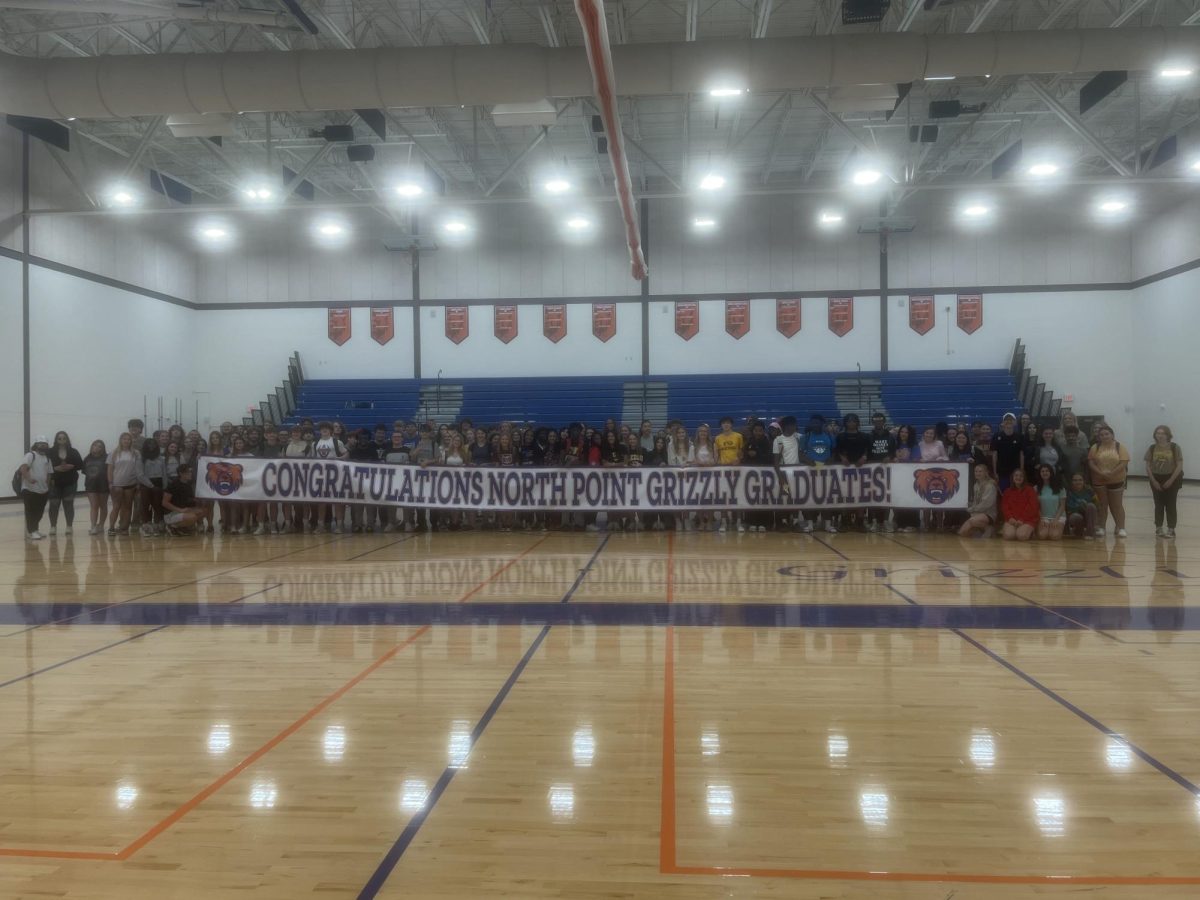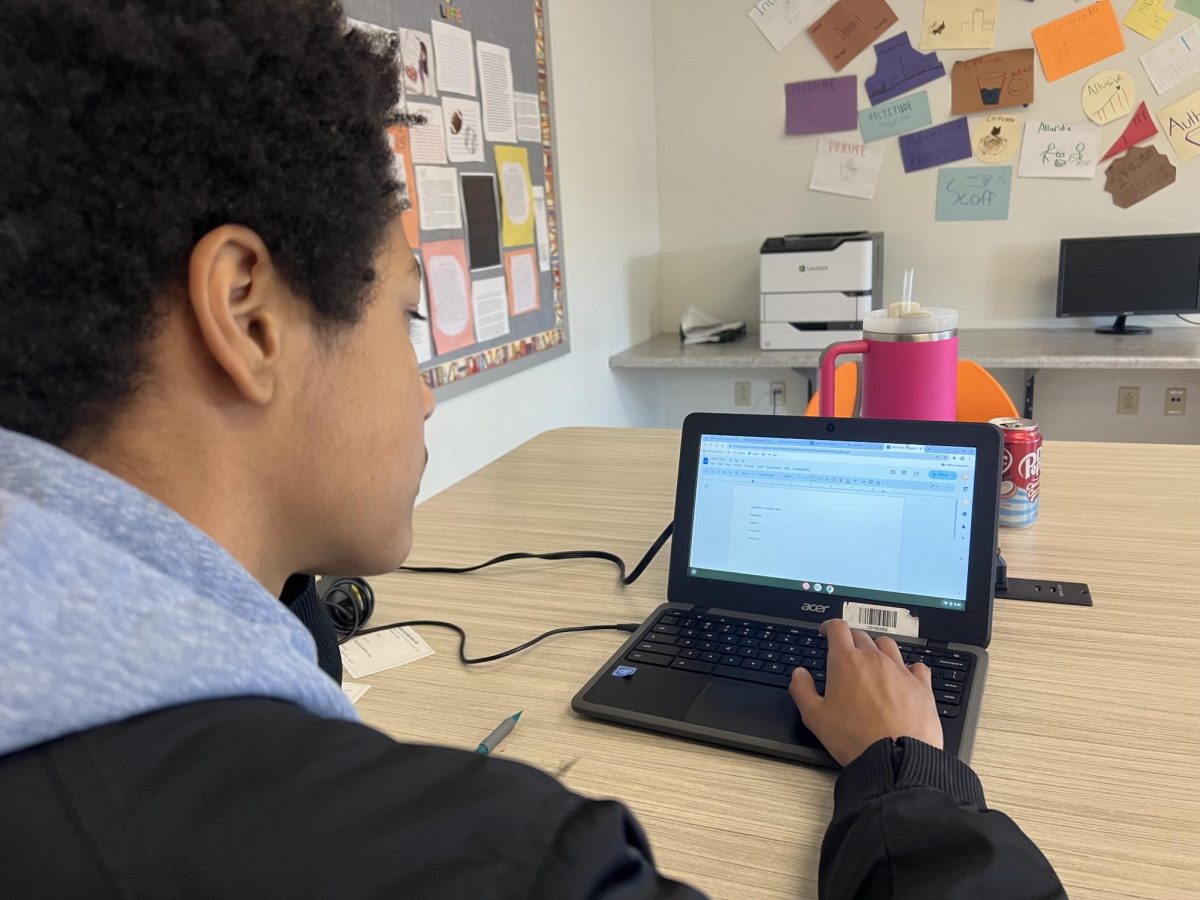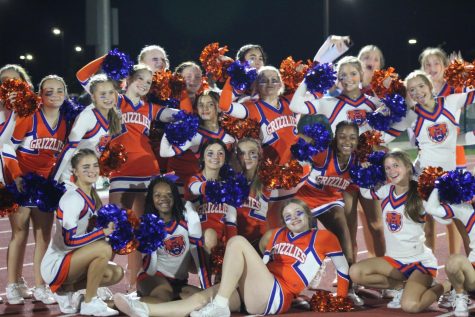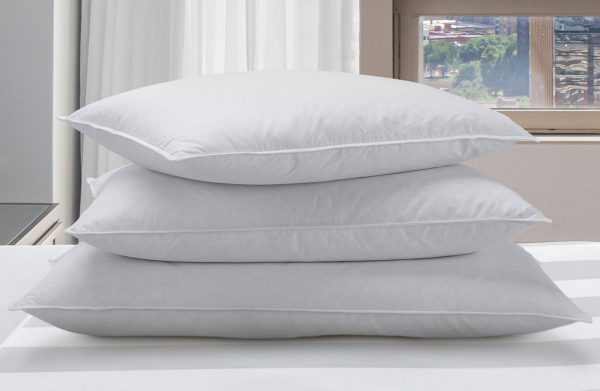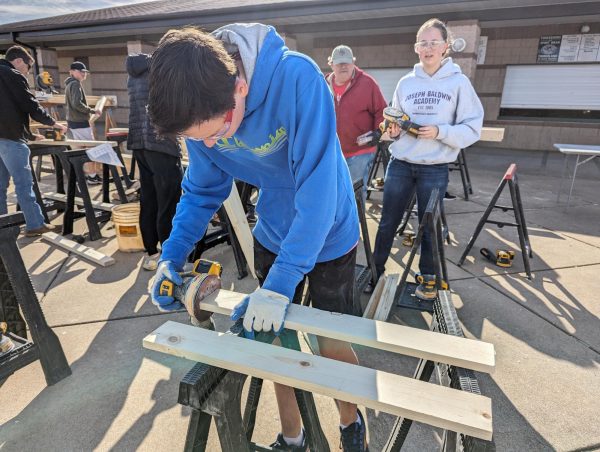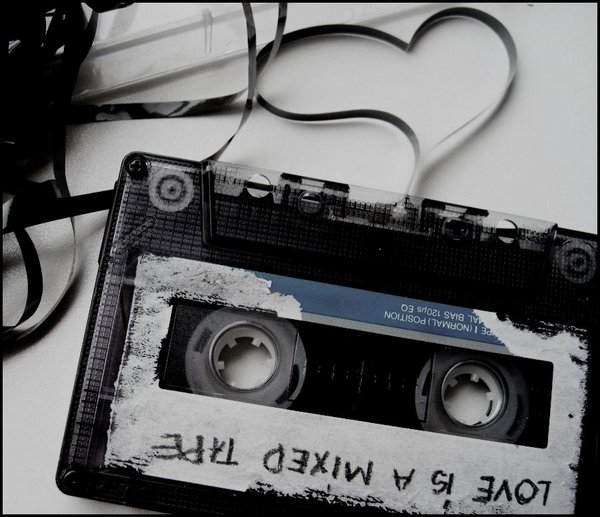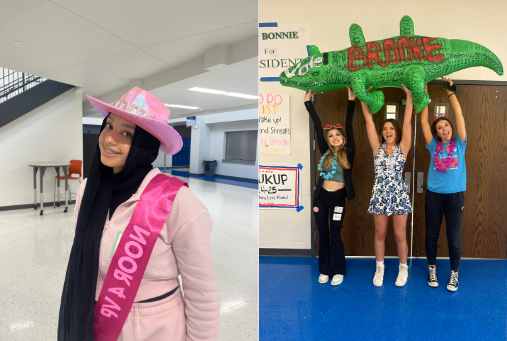Inside the World of Gender Inequality and Representation
The least and most debated issue within the world
The cheerleaders celebrate the victory against Liberty in solidarity.
October 20, 2021
In a world of supposed egalitarianism, women often remain viewed as insignificant to the male gender, causing problems in all areas of life. Throughout history, women have been treated as inferior beings, and with some change, there is still immense progress needed to completely terminate this hierarchy. Notwithstanding the long duration of time this will take and the common misconception that only people with immense power can make remarkable and impactful change, communities, even our own, can begin within themselves correcting the issues of which this inequality and injustice are comprised. Here at North Point, we must act on this imperative matter, in order to best advocate for and support our students and promote a more equal future for generations.
Women, whether it be in the workplace, a school setting or in life in general, are treated differently and experience opportunity and expectation gaps continually. Because most fields considered business related or successful are often associated with male dominance and have been for much time, women are underrepresented, are forced to prove their capabilities to partake equally in opportunities and are subject to false and detrimental stereotypes, all of which are inequities experienced regularly.
In Academics, classes such as STEM, Math and Science courses, Biochemistry and Engineering, all of which are directed predominantly towards males, women must not only prove that they are able to be in the class, but exceed unreasonable expectations to which males are not subject to academically, while not being shown they can because of the severe under representation within these fields. Classes such as Culinary courses, writing, photography, FACS and art which are directed mainly towards women, expect women to succeed and be better than the males. If someone is not feminine or a female, this can cause them to feel as though, because they are not that stereotype that has been created, they will not succeed. This ultimately drives people away from success and opportunities.
The common stereotype that exists states that women and girls must choose if they want to be stylish, pretty, attractive or smart. Stereotypically, a female cannot be smart and pretty simultaneously, or participate in a sport and have more feminine hobbies/ interests or attributes. Stereotypes such as these, are only one example which impedes women’s abilities to be able to be themselves, whilst also having the public’s approval.
“I’ve experienced the whole ‘you cannot do that you’re a girl’ thing and the ‘you’re supposed to do this, you are a girl sentiment’,” Tamauris Toles (‘25) said.
One of the many widespread stereotypes surrounding girls and women in general, is that they simply cannot do the same task as a male, because they are a woman. This stereotype is harmful and false to girls because of the sheer deceit. And until women are no longer determined by their outer exterior, rather than their abilities, they will continue to be put into the same positions under men, with possibly more skills and potential to succeed than their higher ranking associate, a male.
In athletic areas of academics such as PE or team sports, males are chosen first for team captains, tasks requiring “strength” such as helping with supplies, and other positions of leadership. Even if the girls have more athletic potential, because they are not male, they are viewed as weak, not strong enough, or not capable enough to manage these tasks.
“People assume that I’m not strong because I’m a woman, which is something I face continually, because of my gender,” Reygan Ehling (‘23) said. Women are usually given the menial tasks which are left behind to take care of, whether it be in the workplace or classroom, which ultimately deprives individuals of their self worth and confidence, but also tells them that they are not good enough to be considered able to carry out the function.
When women are represented, and females are in a position of power, such as presidents or government leaders, women and girls are shown that they can, despite the common illusion. There is a colossal stigma against women, in the way in which it is believed that women would not be able to be in charge, which is not factual or applicable to the topic. A common example of this stigma is that men often say that women are hormonal, overly emotional, and too much so to be in control/in power or office, which can be disproven, simply with statistics, one including that Norway for example, which is led by a woman, recorded 8,257 cases and 233 deaths since the beginning of the pandemic. While Ireland, which is led by a man, had 24,000 recorded cases and 1,547 deaths in total, thereby defying the prejudice surrounding gender on this topic.
The US has not had a female president and lacks equal representation of gender in its system, which is detrimentally affecting women as a result because women’s issues, health, representation, education and leadership are all dictated by men who are unable to experience what they are controlling. As gender is a vast spectrum, and women include non-cis gender women and women that are gender nonconforming; until all are able to be represented and granted with respect, it is impossible for women to be on the same level as men.
By showing females, starting from the younger ages beginning in school, that they not only have access to equal opportunities, but deserve them, allows for self-assurance which subsequently leads to success later on. North Point can help promote and represent women by showing girls wanting to partake in underrepresented fields, and having women from these fields talk about their success and experience, having clubs where people can express their interests such as these topics without gender oppressive bounds and lifting up women in these classes surrounding their success and acknowledging them.
Female representation also carries into the media, or the things we watch, even as children. Even in Disney movies, where the company is showcasing a girl exceeding her expectations such as Brave, they still capitalize off of movies and merchandise that tells the same group of people that they need saving because of their weak nature, and continues the stereotype that women are only valuable for love and are fragile without a man’s presence, despite their more current disingenuous exploitive female empowering motif. Companies will also hypersexualize the character, treat the female actors horribly or do the opposite with other characters completely discarding their new initiative, causing a confusing narrative within the impactful things they produce.
“In reality tv shows, they make women, black women especially, look rude, not put together, and dysfunctional,” Tamauris Toles (‘25) said.
Tokenism within television and the media, whether its race, gender, body image or any other component of human existence is extremely harmful. Especially in terms of representation, as it provides a false notion and belief of a group of people that can cause that throng and impressionable young minds to believe about themselves, and others, which only furthers the inaccurate and damaging preconception towards one another.
Considering the many negatives that technology has provided us with, there are non-regressive sources that can also allow us to see different perspectives of others and things that can inspire us.
“In Grey’s Anatomy there are lots of female doctors, which is something that you don’t see a lot of,” Brieana Randell (‘25), said.
Shows that have diverse characters and have fought for the representation of all people, such as Grey’s Anatomy, allow for the observer to see and relate themselves within a character. In doing so, it contributes to breaking down gender barriers.
North Point High School’s library is a place for multifariousness, as we have books by female authors of all milieus, giving a voice to all women and their stories.
“When you read about someone that does something powerful, you are then able to see yourself in that character, and believe that it is possible for yourself too,” Mrs. Brockmann, a North Point Librarian said. “Laurie Halse Anderson, Angie Thomas, Nic Stone and Jennifer Mathieu all do an exceptional job of promoting the idea of diversity within their books. I highly recommend them.”
All of these authors can be found in our library.
“Go with the Flow” by Karen Schneemann and Lily Williams, is a story about female empowerment, and women’s health issues,” Stoles said. “The reason I recommend it is because it’s recent and relatable, as in the book, highschoolers fight for women’s rights in and outside of their schools. There should definitely be more books like this one because things that need to be normal, are normalized, and it could potentially motivate more people to stand up for women’s rights. Overall, the book could educate so many people, and I genuinely enjoyed it.”
Currently, until October 15, as it is Hispanic heritage month, our library also has a display consisting only of books that give Hispanic representation. Some of the books within this section that empower and represent women of color include “The Poet X” written by Elizabeth Acevedo, “I am not your Typical Mexican Daughter” by Erika L. Sanchez, “Furia” written by Yamile Saied Méndez, “Anger is a gift” by Mark Oshiro, and “The Education of Margot Sanchez” by Lilliam Rivera.
Celebrities and people with platforms within our society, can also influence change and inspire others to do the same because of their following. They can also provide representation for communities such as the LGBTQ+ community, and other underrepresented groups of people such as Asian Americans, Black women, and women in general.
People such as SZA, Doja Cat and Ariana Grande are all great examples of pop-culture icons, who are active in human rights movements, such as Black Lives Matter, not for publicity but because they care and are passionate about the topic.
“For me, Demi Lovato, who was misgendered for years throughout her career, who was able to have the strength to come out, inspires and empowers me,” Vanessa Jennerjohn (‘24) said. People such as Demi Lovato, who have especially played a big role in pop culture, enormously impact generations, especially in representation.
Women of color such as Viola Davis, Gabrielle Union, Tracee Ellis Ross, Lena Waithe, Stacy Abrams, Indya Moore and Ibtihaj Muhammad are all excellent examples of women of color who are successful, have made change not only in the industry but historically, and of which advocate actively for equal rights within a vast realm and are a great exemplar for women and girls today.
Following representation, the perception often associated with women and the avocations of their choosing, majorly affects our world, while usually being negative. Sports such as gymnastics, dance and cheerleading are all underappreciated in their exertion of strength and skill. Rather than appreciating these elements, people who play these vigorous sports must continue to prove their sport’s validity. Stereotypes surrounding these female driven sports are also abundant, such as that Cheerleaders participating and competing in the sport are mean, stuck up, arrogant, not smart or intelligent and that they usually cannot succeed in other academic areas. All of these attributes are completely false, and based on a preconceived assumption of someone, which takes away from what should be recognized, such as the skill it requires for the strong athletes to be able to lift and throw each other, and tumble, which demands a great deal of strength and physical ability.
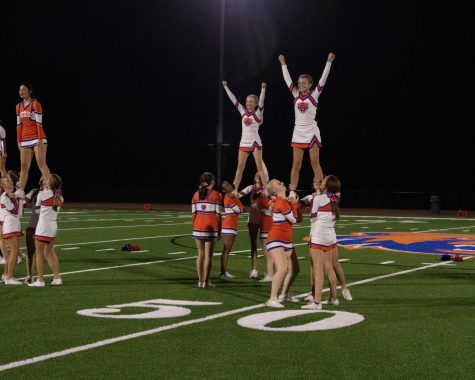
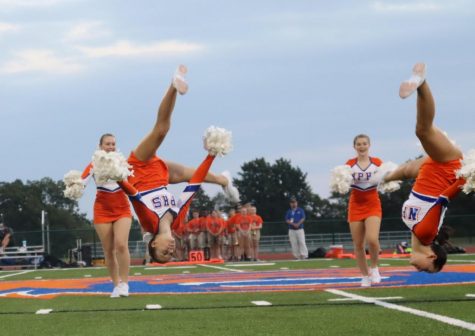
Individuals are also often shamed and sexualized while partaking in these sports because of the uniform/dressing because it is considered more revealing than something such as soccer which also carries into other sports such as volleyball, cheerleading, tennis, acrobatics and some cross country uniforms, all of which state that women should not present themselves in this manner, which would then exempt them from the ability to play the sport, causing them to choose between the approval of others and societal judgments and their passion or talent. The societal expectation for women to be modest, not show skin, and to be automatically less competitive than males is couched in patriarchal expectations surrounding how women must present themselves.
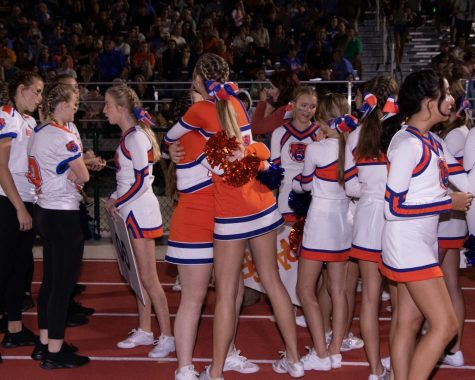
“Being judged by others is always something women deal with,” Karly Tinker (‘25) said.
There is a clear discrepancy within this opinion, as certain male uniforms, which seem to contradict this standard, such as wrestling uniforms do not receive the same effect.
In result of a survey released this week, almost half of the responses, regarding a hardship that is faced simply because of the respondee’s gender, consisted of sexualization. Some of the responses consisted of the stereotypes suggesting that girls/women that express themselves are exigent, and are asking for attention, sexist dress codes throughout the world, harassment, and the disbelief/and inaction from a superior that commonly follows when someone has the strength to tell them about something that has happened. This data should clearly indicate an issue, which North Point can work together to prevent from occuring, by providing a safe space for its students.
Getting dress coded is usually inevitable when you are female-presenting. People are often told, especially surrounding clothing marketed towards women, designed and marketed typically by men, that the clothing items are “distracting, revealing, makes someone uncomfortable, or is even considered immoral.” When someone is dress-coded, they are then being taken away from their classes and missing vital information, showing that the system does not care about distractions or the time used in the classroom but the comfort of males and control of women. The problem should be directed towards the boys, of whom are not paying attention, rather than the innocent and most likely attentive other party.
“The sexualization of my body based on the clothes I’m wearing is a recurring issue I am forced to deal with.” Addison Brown (‘24) said.
Males have almost complete freedom and full autonomy over their bodies and their clothes when it comes to dress code, wheeras a woman must think through and select carefully through her clothes that are made to fit the fashion trends, which don’t necessarily adhere to the controlling “modest” code, in order to preserve their ability to stay in their classrooms and prevent a hindrance to their classwork/class time and be humiliated.
While North Point does not have a strict dress code, that does not necessarily mean that students are exempt from harassment and sexualization by peers.
“Dealing with misogyny from other students is a hardship that is continually faced,” Rachel Goldberg (‘25), said. As she stated, dealing with the misogyny and harassment from peers is a recurring thing women must continue to deal with.
Women are regularly gaslighted for speaking up, and are told they are “dramatic, whining, or simply making it up.” These comments could unmotivate someone and cause them to lose their motivation for speaking up. That is one less voice that had needed to have been heard.
We must take action when an execrable circumstance arises, otherwise, this tells the victim that they are not important enough even to be considered and advocated for, and that the male is more important than themself, because of the choice to not do anything or correct the male’s behavior.
In addition to the subject of occurrences within school, “While this typically does not happen at school, catcalling is so common in female presenting individuals even if they do not identify as female,” Graciela Francis (‘23) adduced. Even though women experience appalling happenings outside of school, that does not inherently mean that schools, such as our own, cannot enforce respect and penalization amongst students, so that we might prevent the notion within individuals that these actions are remotely acceptable.
Another prominent occurrence, of which women must constantly deal with, includes the prejudice of women being “dramatic, hysterical, or melodramatic,” especially surrounding their own health, which mainly contributes to the issues surrounding menstruation, which is something that not just women experience, and must be recognized as so.
Period pain occurs mostly because of substances called prostaglandins, which are released from the lining of the uterus, causing it to contract. When these contractions occur, the pressure that is put on the uterus can be equivalent to labor pains.
Being forced to sit in class enduring harrowing pain, bleeding actively, and being expected to fully participate and focus is unreasonable, which is why pain from menstruation and the subsequent symptoms should be a valid enough excuse to be exempt from PE and missing school, as they have been proven to be more painful than a heart attack, by doctors and institutes around the world. Dr. Jen Gunter, stated “Heart attacks often produce vague symptoms or mild pain, that is why many people ignore them. In addition, more than 40% of women have no pain with heart attacks. It would be dangerous for women to think that a heart attack should be at least as bad as their menstrual cramps.”
North Point should also allow menstruating people to be able to take pain medication such as Midol in the nurse’s office for their severe pain, because they cannot go home, in order to preserve the amount of concentration they are able to conserve. Pads and Tampons/menstrual products also need to be available in all sizes and different varieties in the restrooms, as all individuals differ, and people should also be allowed to use the restroom when it is needed without being questioned to the point of mortification. The average person who menstruates, uses approximately seventeen thousand pads or tampons in their lifetime, which are eminently expensive and accessible to limited people, which in result creates economic and health related issues because of the expensive pricing, demand, and their added tax of up to twenty percent.
Having these commodities, allows for privacy, which provides people with the resources they need.
Menstruation makes it exceedingly hard to focus when students are not aloud to go to the restroom, or are not allowed to take medicine for cramps, and have the accessibility for their needs. Health affects the performance of any individual, which in result affects achievement, therefore for our students to be as successful as possible we must first provide for them and their health.
As a school, and a place where people spend a majority of their time, North Point must advocate, represent, teach respect, provide for and recognize their female students. As this year marks the beginning of a place where current and future generations will learn and build a foundation for success and knowledge, we must also implement not just these ideas and topics, but how we can reconstruct our thinking and our communities to better support women.

